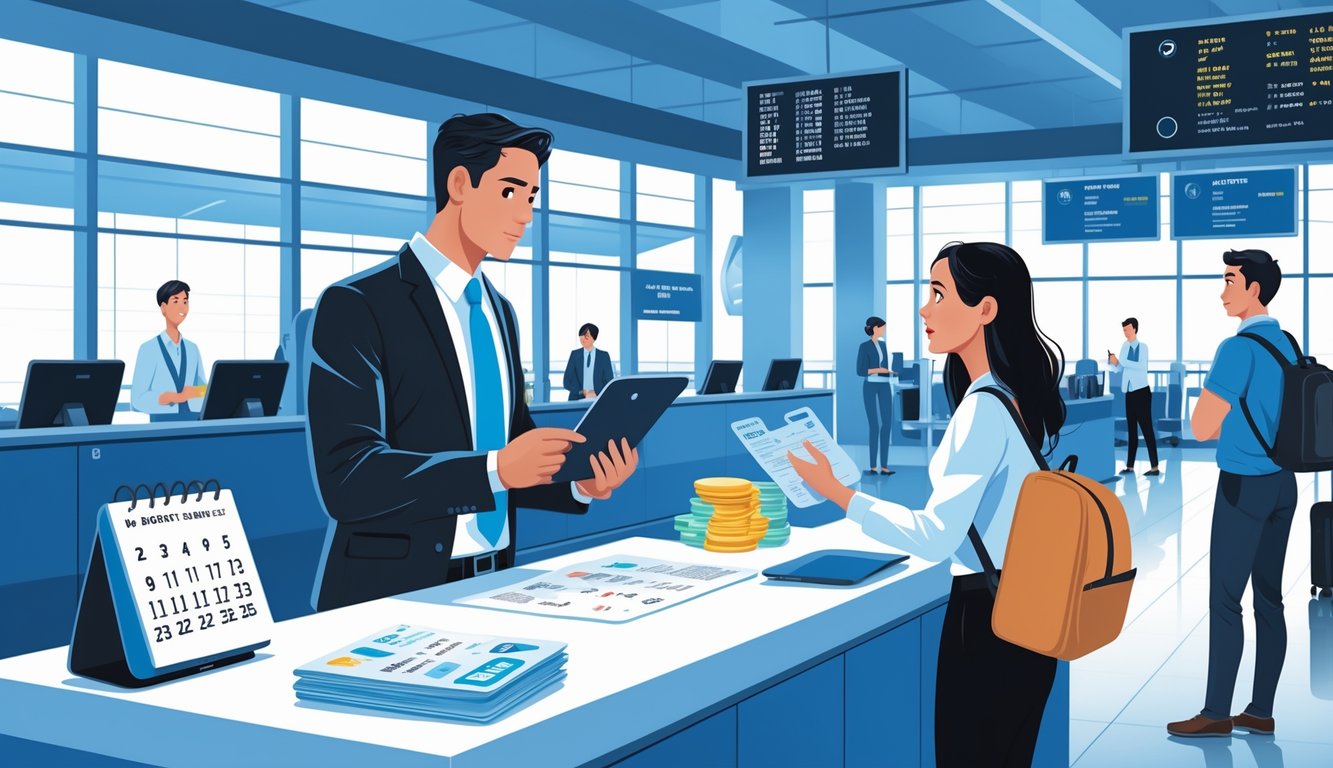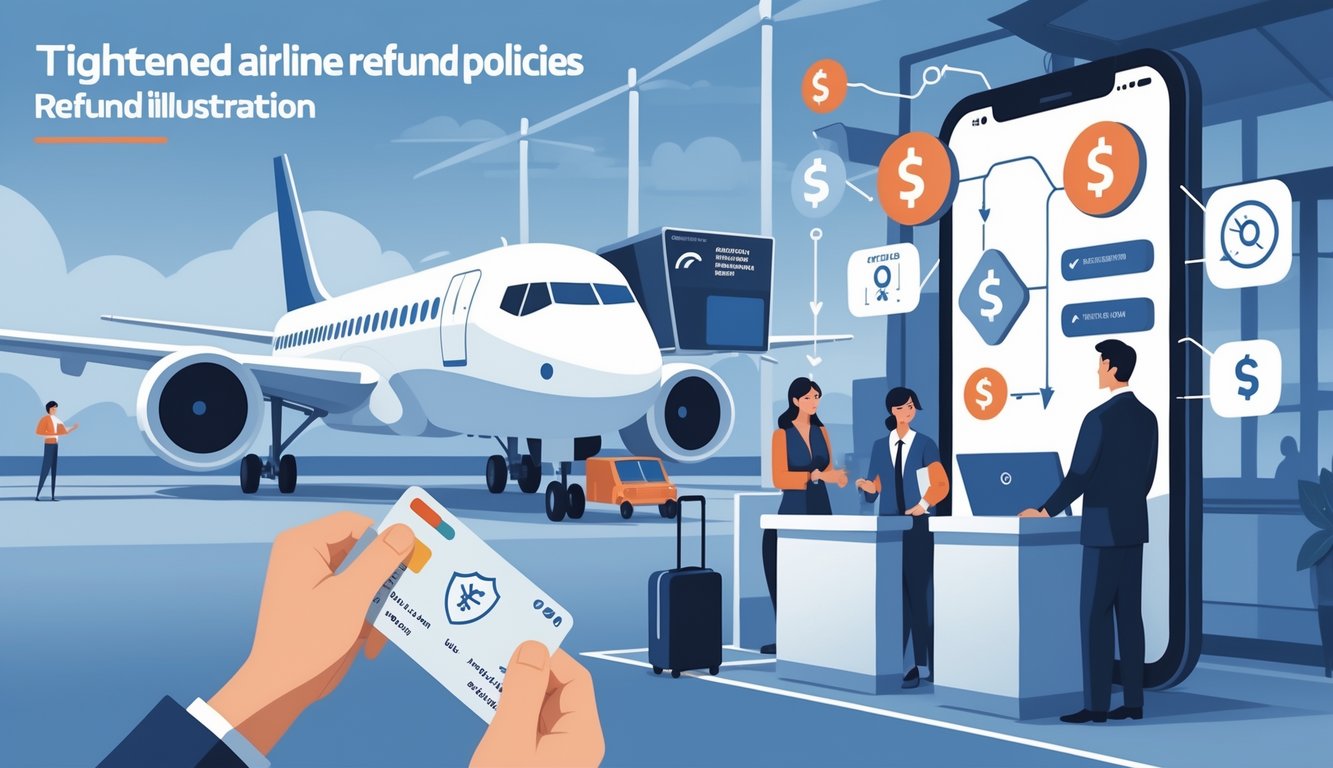
Still salty about that night I missed a Dallas dinner—flight delayed four hours, zero refund, just a sad pretzel and a headache. Now, airlines have quietly reworked refund rules so unless your domestic flight gets delayed three hours (or international by six), you’re not getting your money back—refunds only kick in at those magic numbers. DOT folks even told CNBC that if you take the rebooked flight, you just gave up your right to a refund. Maybe that’s why U.S. airlines paid out $11 billion in refunds last year—people finally snapped and demanded their money. Or maybe I just want to believe that.
Yesterday, my phone buzzed: “MY FLIGHT CHANGED 2 HOURS, THEY WON’T GIVE IT BACK!”—like I’m some secret airline fixer. Also, airlines only cover hotels or meals if the delay’s their screw-up, not if it’s fog, hail, or, I don’t know, runaway geese (the DOT spells it out here). I keep refreshing the cancellation page and wondering, why did refund rules get even more complicated this year? Was it new regulations? Fewer complaints? Or just another way to make us all experts at late-night chat support?
Overview of New Airline Refund Rules
Trying to keep up with these updates, I can’t help but notice how airlines slid in new refund rules without warning. Government rules are supposed to help, but have you ever tried to read fine print while sprinting for a connection? It’s just not happening.
How Refund Policies Changed in 2025
So, here’s the deal: the DOT (Department of Transportation, for anyone who doesn’t live on hold with airlines) stretched out the refund process for canceled or “substantially changed” flights. If the airline cancels or seriously changes my flight (and who decides what’s “serious”?), they’re supposed to shoot me an automatic refund. But if I accept a rebooked flight or stick with a weirdly reworked schedule, I’m out of luck.
Airlines get to decide what counts as a “significant delay.” Bought a non-refundable ticket? Now that same fuzzy “significant” delay is the only thing standing between you and a refund or, more likely, a voucher you’ll never use. If the airline messes up, you might get a hotel or meal, but don’t hold your breath for every delay—only those they actually caused. If you want the details, the automatic refund requirements are all there, but honestly, who’s reading DOT PDFs at the airport?
Key Regulatory Drivers of the Rule Changes
Watching government types parade out their talking points—most travelers won’t even realize why refunds are suddenly harder. This wasn’t some overnight thing; it came after years of refund complaints and travel chaos. By late October 2024, DOT under Biden forced airlines to cough up automatic refunds for certain situations, no more endless forms.
DOT claims these rules bring “transparency” and “consumer protection.” Sure. Try reading a DOT press release while you’re stuck on hold. Policy nerds say the changes make us more like the EU, but my cousin in Berlin just laughs at what we call “timely.” Airlines’ own lobby group said refund complaints dropped after 2020 (here’s the data), but my friends still wait months for refunds. Charts, timelines, all that—at the end of the day, your fate depends on whichever agent picks up.
Reasons Behind the Tightened Policies

These refund rules didn’t just appear—no, I wish I could ignore the new policy hiding in the “terms and conditions.” Watching travelers play games with booking windows, change fees, and last-second refunds, I can’t say I’m shocked. DOT data doesn’t sugarcoat things.
Industry Trends Impacting Refunds
Ever book a sketchy budget flight, two layovers, seat next to the lav, and just assume you can bail if things go sideways? Not anymore. Airlines started tightening refund policies because passengers (guilty) got crafty—using rolling schedule changes to refund nonrefundable fares, then booking on other airlines. That loophole slammed shut.
Remember 2020-2021? Airlines handed out flexible policies like candy. Now, with demand back and prices up, “no refunds except for major changes” is the new normal. Delta, United, all of them, shrinking the window, blaming “operational efficiency” or “fraud.” It’s not about making things easier for us—it’s about stopping what they call “revenue leak.” I once tried DMing an airline for an exception—got a wall of policy-speak for my trouble.
Sometimes there’s a list of exceptions. Sometimes it’s just “no.” A friend swears a gate agent told him, “You picked Basic Economy, so no refund for a change of heart.” But honestly, gate agents and call centers never seem to agree.
Role of the Department of Transportation
Department of Transportation, Pete Buttigieg—names you ignore until your $39 flight gets canceled. DOT’s automatic refund rule says if the airline cancels or changes your flight enough, you’re owed a refund. But airlines love to say rebooking is good enough. DOT rules and what actually happens at the counter? Not always the same.
Buttigieg keeps promising stronger consumer protections, but when I call an airline, it’s like they’re reading their own script: what counts as “significant,” who’s eligible, how fast you get paid. Recent rules tried to force automatic refunds, even for nonrefundable tickets, but blink and the “automatic” part somehow disappears.
Passengers—regular folks, not just travel hackers—get stuck in policy limbo. Even when DOT says you’re owed a refund, airlines can drag their feet, dodge, or just toss you a voucher. Rebooked flight? No cash back, even if the new time means you miss your own wedding. Sometimes I wonder if the people writing these rules ever fly coach.



